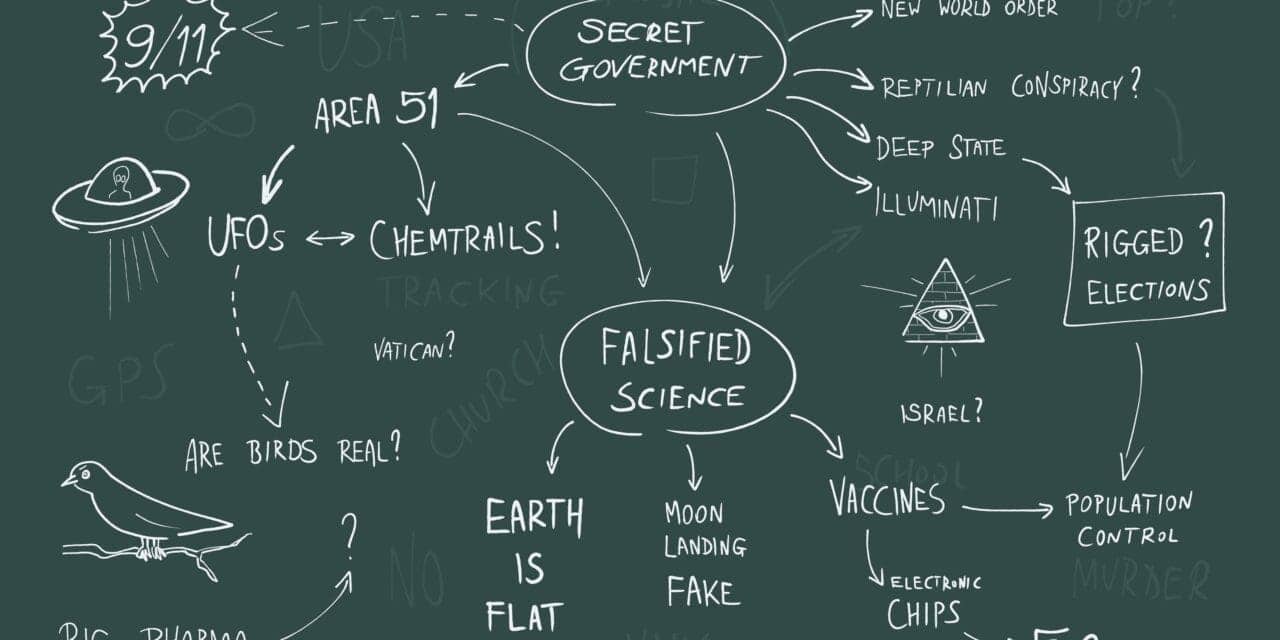Whether it’s chatter about the grassy knoll in Dallas, alleged aliens and Area 51 in Roswell, N.M., the so-called fake moon landing, fake birds being used as spies, airplane contrails seeding the atmosphere, claims of a 9/11 cover-up – and even the recent tragic wildfire on Maui – there are no shortage of conspiracy claims and theories floating about.
Merriam-Webster defines a conspiracy as “a theory that explains an event or set of circumstances as the result of a secret plot by usually powerful conspirators … a theory asserting that a secret of great importance is being kept from the public.”
To be sure, not all conspiracy claims are of equal importance or seriousness, and not by a lot. In fact, entire cottage industries have popped up to both support and promote some of the sillier ones – everything from museums and t-shirts to books, podcasts, television shows and movies. Provocateurs have long profited from the bizarre and zany.
Once relegated to whispers in coffee shops or headlines on supermarket tabloids, social media has provided a platform to anyone and everyone who wishes to float or promote any and all claims. “X” – formerly known as Twitter, is especially fertile ground for conspiracies of all kinds. The stranger the more clicks it seems.
A functioning and civil society works best when adults communicate honestly and don’t fan unproven rumors. But Christians have an especially high bar to meet when it comes to their words and messaging. The Apostle Paul suggested that the more we understand God and appreciate His mysteries and wisdom, the less likely we are to be deceived by “fine sounding arguments” (Col. 2:4).
Peter admonishes that, “Whoever desires to love life and see good days, let him keep his tongue from evil and his lips from speaking deceit” (1 Peter 3:10).
Being rooted in God’s Word is clearly the best defense against falling victim to buying into a conspiracy theory. But assuming the best of intentions, how else can and should Christians best discern what is true versus what is false – what claims are cogent as compared to being pushed out by crackpots or those committed to spreading outright falsehoods and lies?
Discernment is both a spiritual gift and an ability that can be cultivated. It can come with age, but it also comes with prayer, study, curiosity, and conversation. If we ask more questions and make less statements, we can build up a healthy reservoir of wisdom. Instead of immediately retweeting something that sounds juicy or odd, ask a trusted friend about it.
In this day and age, a healthy dose of skepticism is often in order. First and foremost, always consider the source. We laugh at the Abraham Lincoln meme floating about online, purportedly quoting our sixteenth president from 1861, when he allegedly said, “The problem with information that you read on the Internet is that it is not always true.” It’s a silly joke, but it points to a larger fact: the internet is the wild west and can’t always be trusted.
Unfortunately, the government, politicians, and bad corporate and private actors have given far too many reasons lately to not only be skeptical – but also suspicious of various things. Some conspiracy theories may have an element or touch of truth in them. But we cannot allow our frustrations and disappointments with these entities cause us to cast good judgment aside and believe everything we see or read. We need to make sure Scripture serves as our foundation. We need to do our homework. We need to read from multiple reliable sources, do our research, ask questions – and pray.
As trust in our institutions continues to decline, an inclination towards conspiracy theories will inevitably go up. A strong sense of spiritual discernment should help Christians best decipher between willful deception, incompetence or sometimes coincidence. Beware the bogeyman – just don’t buy into the belief there’s one behind every bush.
Photo from Shutterstock






